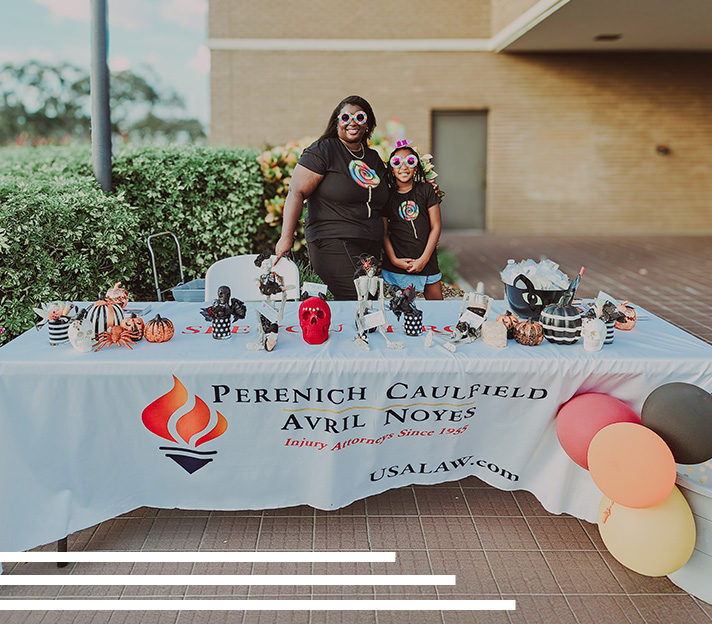Can I Bring a Personal Injury Claim on Behalf of a Child?
A serious injury inflicted upon a child is always a tragedy. When someone else’s misconduct causes the injury, it is nothing less than an outrage. In Florida, a child under the age of 18 who suffers a personal injury cannot bring a claim on their own. An adult must file a claim for them. Normally, the child’s parent files the claim.
How Does a Parent File a Claim?
To file a personal injury claim on behalf of your child, you can take either of the following actions.
- Send a demand letter to the defendant or the appropriate insurance company (the defendant’s auto liability insurance company, for example). The demand letter is simply a starting point for settlement negotiations.
- File a formal Complaint with the appropriate court to initiate a lawsuit.
You will almost certainly need a Clearwater car accident attorney to help you draft either one of these documents because every sentence matters. You might end up filling both a demand letter and a Complaint, because filing a lawsuit can help you expedite settlement negotiations. Defendants resolve almost all personal injury claims through private settlement rather than through trial.
Must a Court Approve a Private Settlement?
The requirement for court approval depends on the amount of the settlement. If the gross settlement amount (the amount that the defendant actually pays) exceeds $15,000, the court must approve the settlement based on the “best interests of the child” standard. If the gross settlement amount is $15,000 or less, then the child’s parent or legal guardian can settle the case without the court’s approval.
Are There Any Protections Against Misuse of the Money Once the Defendant Pays the Claim?
Legal safeguards exist, and they depend on the amount of the compensation. See below for details.
Amounts Over $15,000
If the gross compensation (whether settlement or trial verdict) exceeds $15,000, the court must appoint a legal guardian, usually a parent, to manage the money. The money goes into a restricted bank account that the guardian can access only through a court order. The court will allow the release of the funds based on the best interests of the child.
Amounts Up to $15,000
If the gross compensation is $15,000 or less, the court need not appoint a legal guardian. The court might nevertheless do so if both parents are either unavailable or unfit to manage the money. The parents must place the money into a separate bank account and manage it solely for the best interests of the child. The court has the authority to exercise supervision over the use of this money.
Is There a Statute of Limitations to File a Claim?
The statute of limitations is a law that sets the deadline by which you must file a lawsuit over a claim. You must either settle your claim with a formal written settlement agreement or file a lawsuit by the deadline set in the statute. If you miss the deadline, your claim will become worthless immediately. The normal deadline in Florida is either two (for accidents occurring on or after 3/24/2023) or four years (for accidents occurring prior to that date) after the date of the injury. Fortunately, an exception applies when the victim is a child under 18.
In Florida, a parent can file a personal injury claim on behalf of their child any time before their child reaches 18, or until 7 years have elapsed after the injury occurred, whichever is later. If the child turns 18 before the statute of limitations deadline expires, the child (now an adult) may file the lawsuit.
Special Circumstances
Special considerations apply to the statute of limitations as it applies to:
- Medical malpractice claims,
- Product liability claims,
- Sexual abuse claims,
- Uninsured motorist claims,
- Claims against a government,
- Claims that the victim did not discover until after the injury occurred, and
- Wrongful death.
Statute of limitations issues can be deceptively complex. Never simply assume that the deadline is a certain date because an error could be fatal to your claim. Always consult with a lawyer first.
What is Comparative Negligence?
In many cases, more than one party is liable for an accident. In such cases, Florida applies a “modified comparative negligence” system. The court will assign a percentage of fault to each responsible party. It will order each party to pay damages in proportion to their fault. If one party is 30% at fault, for example, then they must pay 30% of the injured party’s damages. Florida also has a 51% rule in place, which means any party cannot recover compensation if they were 51% or more to blame.
When a Parent Shares Fault
Sometimes a parent is partly responsible for their child’s injuries. Imagine, for example, that a third party’s reckless driving caused an automobile accident, but the child’s injuries were worsened by the parent’s failure to put the child in a booster seat.
If you were partially at fault for your child’s injuries, the court may hold you financially liable for your percentage of fault. It might also deny you the right to press your child’s personal injury claim, due to:
- Conflict of interest concerns, since you are a potential defendant in the personal injury claim; and
- Your misconduct might raise doubts about your ability or willingness to manage personal injury compensation in the best interests of your child.
Under such circumstances the court will appoint another guardian to press your child’s claim.
Can I Seek Compensation for My Own Emotional Trauma?
If your child has suffered an injury resulting in permanent or total disability,
you can file a “loss of filial consortium” claim based on your own loss of companionship, society, love, affection, and solace. Any injury of lesser severity will not give you the legal standing you need to file a loss of filial consortium claim.
You can claim:
- Your own economic losses arising from the child’s accident (missing work to care for your child, for instance); and
- Loss of comfort and companionship.
Florida is one of a small number of states that allow parents to file a loss of filial consortium claim. Most states do allow similar damages, however, when a child dies in an accident. When you press your own claim, remember that the lawyer pressing your child’s claim represents your child, not you.
Can I File a Claim for the Wrongful Death of a Child?
In Florida, the personal representative (executor) of the child’s probate estate can file a claim under Florida’s wrongful death statute. Since few children have wills naming executors, the probate court will appoint a personal representative. The personal representative is normally a parent.
Wrongful death damages can be substantial, and they can include damages for mental pain and suffering. The court will distribute them to close relatives of the child, particularly the parents. The statute of limitations is generally two years after the date of death.
Don’t Try to Handle This On Your Own
Filing a claim on behalf of an injured child, or filing a claim for your own mental anguish, raises quite a few complex legal issues. Consult with a lawyer before taking legal action or initiating any communication with the defendant or an insurance company. Contact Perenich, Caulfield, Avril & Noyes Personal Injury Lawyers today for a free consultation.

We treat you like family.
If you can’t come to us, we’ll come to you.
Representing Accident Victims in Tampa Bay since 1955



-
“Friendly knowledgeable and kept me informed about my case. Any offer, bill or question was readily answered. Would definitely recommend and refer people to Bryan Caulfield and his team!!”- Betty B.
-
“Mrs Bryant works her butt off to make sure you get what is do to you in medical and beyond! They won’t take your case if they don’t feel you haven’t been wronged.”- Christine R.
-
“Working with Mark Perenich on my auto injury case was an absolute game-changer. From the very beginning, he brought a level of professionalism, expertise, and care that immediately put us at ease.”- Kerry B.
-
“Lorrie and Allyson are phenomenal. I highly recommend them to anyone. It seemed like a never ending journey but I can’t thank them enough for diligently fighting my case with the greatest integrity, support and prayers.”- Former Client
-
“From the first day we met this law group I felt very comfortable and knew we would be well taken care of. This was our first experience filing for SSD, and was not disappointed. The lawyers are awesome and very professional.”- Shari J.
-
“Very nice they worked with you. Never ignored me with my case. Always on top to work with you. Thank you so much for all that you have done to help me! Very highly recommend.”- Margarita O.
-
“My appointed attorney was Jacqueline, Bryant. She is very compassionate about her client and work. When it comes to negotiation, she's a Beast and she gets the job done.”- Alaina J.
-
“What was particularly awe inspiring was the recall of facts and testimonies from medical personnel that Para Legal Ms. Josephine Elizabeth Angelo was able to make. Her memory and acumen for detail was admirable.”- Maylisa Y.
-
“Wonderful, impeccable, personalized, authentic, truthful, honest experience. Rare, real, and human firm.”- Sheryl G.


We’ve been proudly serving Clearwater, St. Petersburg, and the Tampa Bay area for generations. As the first personal injury law firm in Clearwater, our dedicated legal team brings over 300 years of combined experience to each and every case. If you’ve been injured and need support, please reach outtoday for a free consultation, we are here to help you.















